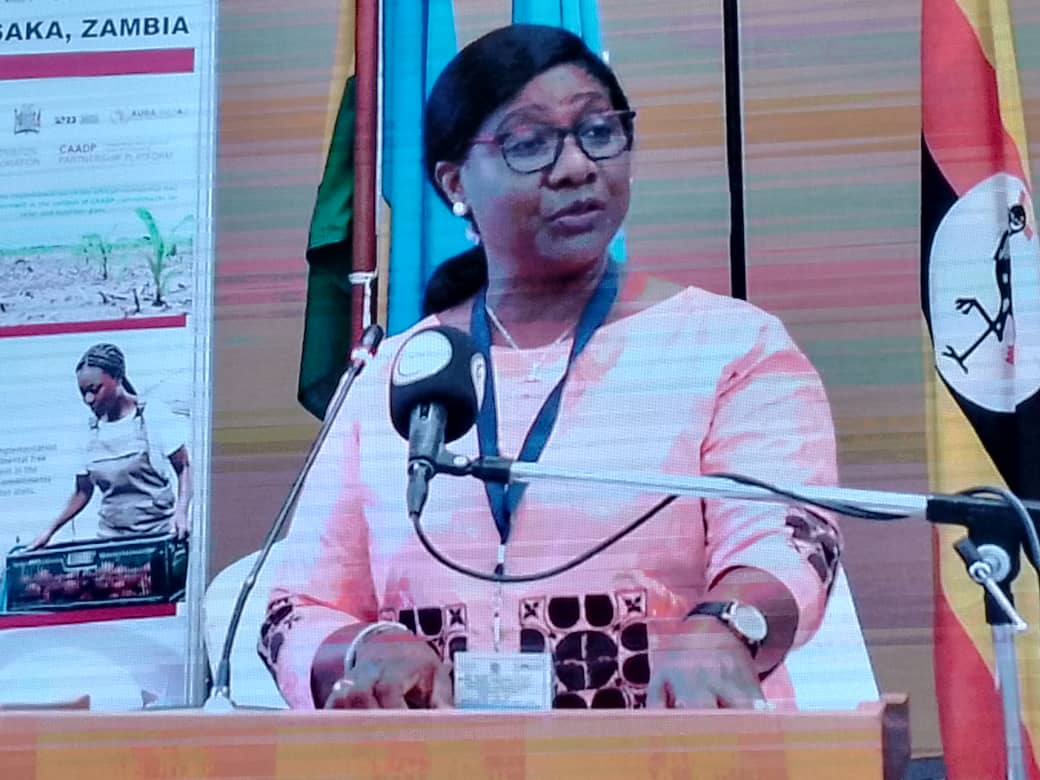|
Getting your Trinity Audio player ready...
|
As Africa experiences the persistent onslaught of extreme weather events ravaging livelihoods and infrastructure, stakeholders have been urged to scale up climate resilience and adaptation to address the phenomenon.
These were the sentiments of Estherine Fotabong, the Director of Agriculture, Food Security, and Environmental Sustainability at the African Union Development Agency (AUDA-NEPAD) delivered virtually during a hybrid Post-COP28 Roundtable on behalf of Madam Nardos Bekele-Thomas, the institution’s Chief Executive Officer, held under the theme “Scaling up Climate Resilience and Adaptation Interventions for Africa.”
The persistent onslaught of extreme weather events continues to ravage both livelihoods and infrastructure, impeding the overall development trajectory of numerous African nations. Over the past five years, Africa witnessed a surge in disasters across the continent, averaging approximately 98 per year, resulting in around 70,000 fatalities.
In 2023 alone, the Southern Africa region reported around 500 casualties attributed to Cyclone Freddy.
“These challenges compound an already tumultuous landscape, as Africa grapples with what can be succinctly termed as the storm of the four “Cs”: climate change, conflict, post-COVID-19 recovery, and the escalating costs of food and fuel due to geopolitical tensions. This convergence of crises is pushing millions of our most vulnerable citizens towards food and nutrition insecurity, undermining our progress towards achieving the objectives outlined in the Malabo Declaration, including the ambitious target of zero hunger by 2025, as well as the broader Sustainable Development Goals by 2030 and Agenda 2063,” she said.
To that end, the realization of the “Africa We Want” remains elusive as the continent mourns the loss of 47 African lives daily to preventable disasters.
“Yet, while natural hazards are inevitable, their transformation into deadly disasters isn’t. By investing in building resilient communities, we can significantly mitigate disaster risks and minimize associated losses. However, Africa has long found itself at the periphery of international climate finance, despite requiring an estimated $2.5 trillion in funding between 2020 and 2030 to effectively tackle climate-related challenges. Alarmingly, only 12% of the total annual climate finance is directed towards Africa.
“Today, as we convene to discuss concrete steps towards scaling up climate resilience and adaptation interventions for Africa, let us not forget the momentum generated by COP28. This pivotal conference provided a platform for strengthened engagement with various stakeholders, including businesses, philanthropies, subnational authorities, and civil society, all crucial in advancing climate action.”
The development proponent urged Africa to capitalize on the gains made at COP28, enhancing its climate diplomacy and bolstering its capacity to access diverse climate finance opportunities. Initiatives such as AUDA-NEPAD’s Comprehensive Study on Carbon Markets in Africa and the resulting design of an African gold standard for Carbon trading; and partnerships with organizations like the Alliance for Green Revolution in Africa (AGRA) and the Green Climate Fund that has mobilised $100m for 7 African countries have laid important groundwork in this regard.
She said the active involvement of Africa’s youth is imperative for sustaining the collective commitments. Through initiatives like the Energize Africa program, AUDA-NEPAD is committed to collaborating closely with stakeholders to ensure the meaningful integration of youth perspectives and contributions.
The world is currently experiencing numerous long-term structural transformations, including climate change, demographic shifts, and the rapid advancement of AI and other technologies. In light of these developments, Madam Fotabong said it is essential to be prepared for both known and newly emerging risks through measures of readiness, adaptation, and mitigation.
AUDA-NEPAD expressed its readiness to collaborate with key institutions, member states, and development partners to capitalize on a range of opportunities, such as Debt-for-Nature swaps, carbon credits, and access to the Green Climate Fund, Adaptation Fund, and the Loss and Damage Fund.
These avenues offer promising routes toward sustainable development and climate resilience. However, their realization depends not only on member states’ capacity to design viable projects but also on the significance of localized strategies to bolster resilience efforts and enhance climate financing.
“Leveraging partnerships, investments, and regulations at the grassroots level will serve as a crucial pathway to maximizing the impact of these initiatives. Together, through concerted action, let us embrace these opportunities to drive transformative change across the African continent by amplifying financing for climate resilience and adaptation interventions,” she added.






